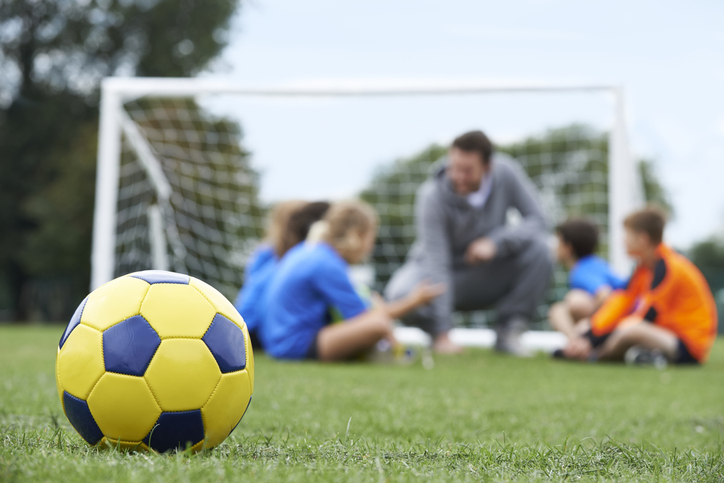
As the school year begins, the call for more children to participate in organised sport has never been louder – but problems that sports organisers face are compounded by indifference from parents, in addition to worries about COVID-19 restrictions.
Flinders University sports education expert Associate Professor Shane Pill says participation numbers can easily be increased but will rely on greater cooperation and planned strategies from coaches, schools and local sports clubs.
“In the short term, we need to build a bridge back to sport – and this will involve local sports clubs and schools working in closer partnerships to nurture more sport participation,” says Associate Professor Pill.
“Schools offer an easily accessible context for sport participation. Clubs and codes should therefore be strategic to think about how they can support schools to develop on-site.
“There is a chance that sport can be better for all children and youth than before COVID-19 restrictions through a different model of youth sport provision.”
Such optimism is supported by the latest AusPlay research by Sport Australia, which says 76.1% of Australian children participated in organised outside-of-school sport or physical activity at least once in 2019. Much of this participation was through sports clubs (62.1%), but the coronavirus pandemic has had a significant impact on organised sport when gatherings were put on hold to adhere to health advice.
However, children’s physical activity was impacted more than adults, with less than one in five Australian children being active in organised activities outside of school during lockdown “This is why successful re-booting of children’s organised sport is critical,” says Associate Professor Pill.
He says the Sport Australia Sporting Schools platform provides an ideal vehicle to provide more informal and formal sport opportunities on school campuses.
“It must be made as easy as possible for children and youth to access sport as a physical activity opportunity in the critical window between 3.30pm and when a parent arrives or after-school care pick-up occurs between 5.30pm and 6.30pm.
“Most primary schools and just about all secondary schools have good grounds for informal and formal sport provision, yet in many cases students are kicked off the campus as quickly as possible at the end of the school day or shuffled into after-school care.”
Associate Professor Pill says coaches assume an increasingly important role in sport participation and retention for young age groups. “Coaches influence two important areas – continuing the development of players with ambitions to play at higher levels; and engaging all participants by giving them game time and engagement, showing an interest in developing young people as well as players.”
To engage better with Under-10 participants, sports should provide more opportunities for children to play with purpose. “This means promoting physical activity and developing movement ability by game design,” says Associate Professor Pill.
“Players who report a high level of parental support tend to report greater enjoyment, so parents need to be encouraged to play informally and with purpose with their children, and parents need to be convinced of the benefit of sport participation for their child’s physical, social, emotional and cognitive development.”
To engage more 12-18-year-old participants in sport, Associate Professor Pill says more informal sport opportunities need to be created, along with an elevated standard of coaching.
“If we want to develop talent in sporting environments as a means of retaining youth in sport, let’s look at what Iceland did in football. To become more competitive on the world football stage, interested parents coaching at local clubs were encouraged to become qualified coaches. It made a massive difference.
“This requires investment to prioritise coach education and development to elevate the standard of coaching as strategic priority.
“Coaching is so central to youth sport retention that elevating the standard of coaching at community sport levels must be a strategic priority in the re-ignition of sport.”
- Associate Professor Shane Pill is author of the new book Perspectives on Game-based Coaching (published by London & New York: Rouledge, 2020).

